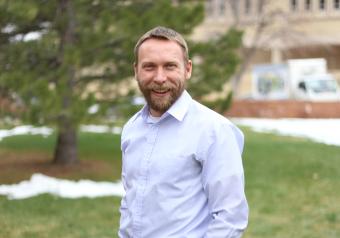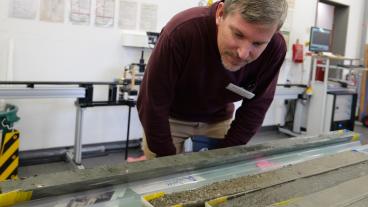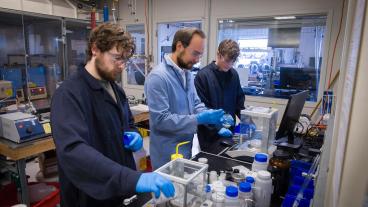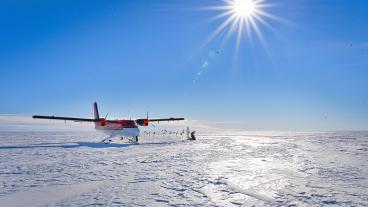Mines professor part of $10M DOE Energy Frontier Research Center focused on hydrogen-based energy tech
Ryan O’Hayre's research group is working to synthesize new H+ (proton) and H- (hydride) conducting oxide materials

A Colorado School of Mines professor is contributing to a new $10 million U.S. Department of Energy research center focused on developing hydrogen-based energy technologies.
Ryan O’Hayre, University Distinguished Professor of Metallurgical and Materials Engineering at Mines, is one of 11 co-principal investigators in the Hydrogen in Energy and Information Sciences (HEISs) Energy Frontier Research Center, which is being led by Northwestern University materials scientist Sossina M. Haile.
HEISs – a play on the German word for “hot” – is one of 43 Energy Frontier Research Center awards announced by DOE late last week, each bringing together teams of scientists to perform basic research in the energy sciences with a scope and complexity beyond what is possible for individuals or small groups. The Northwestern-led research team will work to provide a scientific foundation for practical developments in carbon-neutral energy – including nitrogen and carbon dioxide reduction – and materials for brain-inspired computing.
At Mines, O’Hayre’s group is working to synthesize new H+ (proton) conducting oxide materials as well as new H- (hydride) conducting oxide materials. From there, they will be collaborating with other center members to study how hydrogen gets incorporated into these materials, and how it moves and behaves inside these materials once incorporated.
“Hydrogen-ion conducting materials have applications in fuel cells, electrolyzers, batteries, sensors, as well as in the emerging field of neuromorphic computing, where scientists are trying to make artificial synapses and neurons to create new kinds of computers that mimic how the human brain works and learns," O’Hayre said. “Over the last decade, Mines has become recognized as one of the world leaders in the area of proton-conducting ceramics, so I’m excited about the chance to work with a world-class team of scientists in this center to deepen our understanding of these exciting materials and discover new ways of using them in energy conversion applications as well as computing technologies.”
HEISs also plans to offer student research exchanges between center members, so Mines graduate student and postdoctoral researchers will have the chance to spend a few weeks to months at one of the partner institutions. Also participating in the new research center are Massachusetts Institute of Technology, Florida State University, University of Illinois Urbana-Champaign and University of Tennessee, Knoxville.
The EFRC program was established in 2009 and is funded by the DOE Office of Science Basic Energy Sciences Program. The current 51 EFRCs represent funding in 35 states plus Washington, D.C. (including lead and partner institutions).




